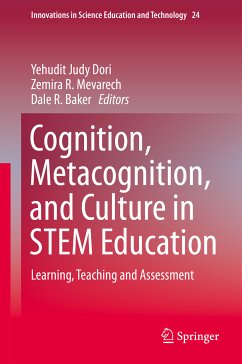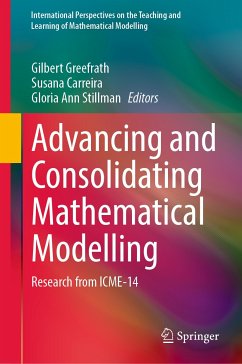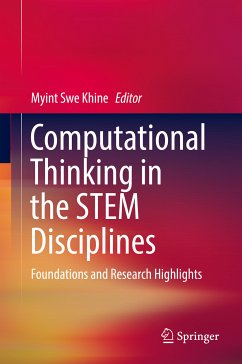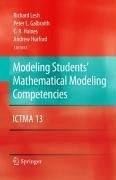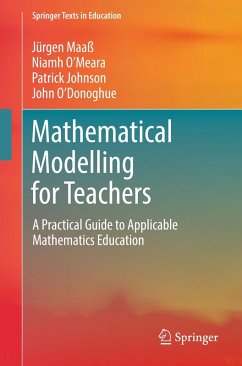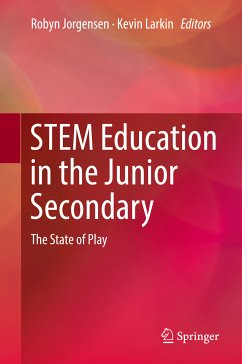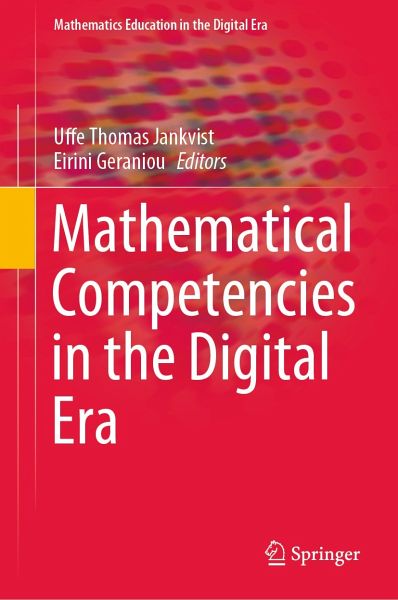
Mathematical Competencies in the Digital Era (eBook, PDF)
Versandkostenfrei!
Sofort per Download lieferbar
Statt: 160,49 €**
112,95 €
inkl. MwSt.
**Preis der gedruckten Ausgabe (Gebundenes Buch)
Alle Infos zum eBook verschenkenWeitere Ausgaben:

PAYBACK Punkte
56 °P sammeln!
This book focuses on the potential interplay between two distinct, yet related paradigm shifts in mathematics education, drawing on the notion of "networking of theories" through illustrative case studies from the Danish educational system and beyond. The first paradigm shift is the massive introduction of digital technology in the teaching and learning of the subject; the second is a shift from the traditional focusing on mastering of skills and knowledge to being concerned with the possession and development of mathematical competencies. This book builds on the Danish KOM (Competencies and t...
This book focuses on the potential interplay between two distinct, yet related paradigm shifts in mathematics education, drawing on the notion of "networking of theories" through illustrative case studies from the Danish educational system and beyond. The first paradigm shift is the massive introduction of digital technology in the teaching and learning of the subject; the second is a shift from the traditional focusing on mastering of skills and knowledge to being concerned with the possession and development of mathematical competencies.
This book builds on the Danish KOM (Competencies and the Learning of Mathematics) project, which sources its description of mathematical mastery primarily on the notion of a "mathematical competency" rather than on lists of topics, concepts, and results. This allows for an overarching framework, which captures the perspectives of mathematics teaching and learning at whichever educational level. While the KOM framework does not in detail address the role of digital technologies in relation to its description of different types of mathematical competencies, etc., the chapters of this book set out to do exactly this, while in the process also drawing on a selection of other theoretical constructs and frameworks from mathematics education research.
Starting with introductory chapters by key researchers in the area, the book brings forth chapters for each of the KOM framework's eight mathematical competencies, authored by Nordic researchers in combination with international scholars. The KOM framework also operates with three types of overview and judgement, which are specifically addressed in relation to the role of digital technologies in the third part of the book. The fourth and final part of the book broadens the scene and provides chapters of a more perspective nature in relation to mathematical competencies in the digital era. The book's preface is by Susanne Prediger.
This book builds on the Danish KOM (Competencies and the Learning of Mathematics) project, which sources its description of mathematical mastery primarily on the notion of a "mathematical competency" rather than on lists of topics, concepts, and results. This allows for an overarching framework, which captures the perspectives of mathematics teaching and learning at whichever educational level. While the KOM framework does not in detail address the role of digital technologies in relation to its description of different types of mathematical competencies, etc., the chapters of this book set out to do exactly this, while in the process also drawing on a selection of other theoretical constructs and frameworks from mathematics education research.
Starting with introductory chapters by key researchers in the area, the book brings forth chapters for each of the KOM framework's eight mathematical competencies, authored by Nordic researchers in combination with international scholars. The KOM framework also operates with three types of overview and judgement, which are specifically addressed in relation to the role of digital technologies in the third part of the book. The fourth and final part of the book broadens the scene and provides chapters of a more perspective nature in relation to mathematical competencies in the digital era. The book's preface is by Susanne Prediger.
Dieser Download kann aus rechtlichen Gründen nur mit Rechnungsadresse in A, B, BG, CY, CZ, D, DK, EW, E, FIN, F, GR, HR, H, IRL, I, LT, L, LR, M, NL, PL, P, R, S, SLO, SK ausgeliefert werden.




